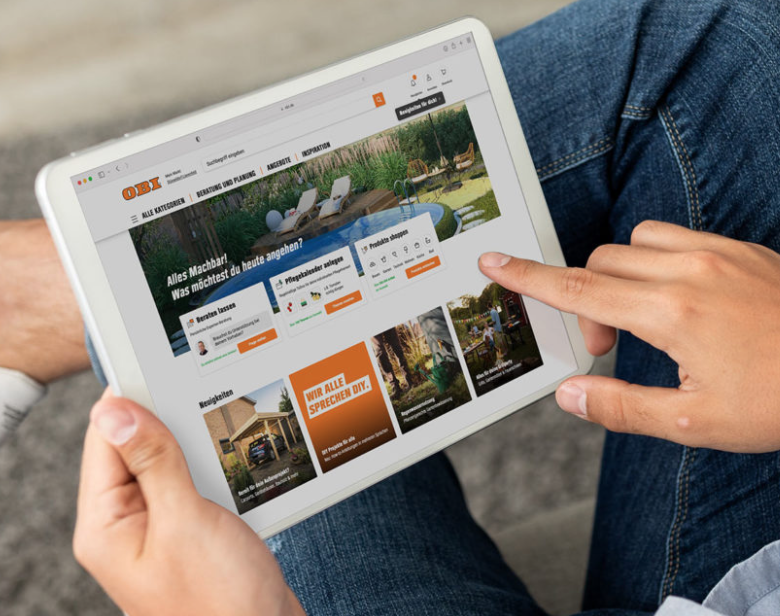Covid-19 has been a trigger for digital, accelerating investment in ecommerce and implementation of innovative digital strategies. It has accelerated what would have happened in the industry as retailers and consumers have continued to shift towards more online and omnichannel retailing and away from store-based approaches. It has just all happened a lot sooner and faster than would have been seen otherwise.
B2B businesses have pivoted to selling direct to consumers, sometimes for the first time, and in the case of one wholesale food company the leap has been its first step into ecommerce. As highlighted further in the case studies later in this report, Country Range Group launched the first of six B2C ecommerce sites a couple of days after lockdown as its existing business of wholesaling food to the hospitality industry almost completely disappeared.
This move to selling direct online is taking them out of their comfort zone of a niche B2B business which until now has been sheltered from the wider move within retail to omnichannel and making every opportunity shoppable. “It’s exposing them to the wider ecommerce world and the opportunities that sit within that. It’s a far easier environment to learn about ecommerce in than their traditional B2B model. We’ll see the transferral of these learnings, new habits and new opportunities into their core B2B model and that’s what the big benefit of this will be rather than it [B2C] becoming a hugely lucrative part of their business,” says Richard Fletcher, managing director, Foodservice Online.
The change in mindset and working between B2B and B2C is a large one for some to grasp and different businesses within the Country Range Group are handling it better than others. If you think about how long it has taken store retailers with a focus on the end consumer to change corporate thinking around selling online, these companies are going through a swift initiation.
“D2C is a very new business model for us and changing from day to day working on B2B into a B2C mindset and website is quite a task. Everyone is having to change and adapt to what the focus is,” explains Kellie Parsons, marketing director, Madison. The B2B bicycle and parts wholesaler is focusing almost entirely on its B2C freewheel.co.uk business during the pandemic.
Covid-19 lockdowns are impacting omnichannel retailers too, highlighting differences between the omnichannel leaders and the laggards. Amongst retailers classified as selling non-essentials it is those that have invested heavily in digital technologies, omnichannel and agile business strategies that are faring better than others.
Department store Selfridges has introduced gifting advice online and beauty tutorials on Instagram while consumers can book personal shopping sessions via video when the store reopens on 15 June. “We want to bring Selfridges into the comfort of people’s homes,” says Meave Wall, stores director, Selfridges.
The online channels at Currys PC World in the UK and Ireland recovered around two-thirds of lost store sales as people bought technology enabling them to work from home at the start of lockdown. Online grew by 166% over the 5 weeks to 25 April. The company has innovated launching live video shopping for online customers and introducing contactless shopping in-store.
Marks & Spencer meanwhile has had a worst first quarter turnover with profits plummeting 20% as sales of homewares and clothing fell 75%. Chief executive Steve Rowe told the BBC that the business has discovered that it is able to work in a faster, leaner, more effective way with working habits “transformed”.
Retailers have had to embrace the changes and move fast to embrace them but for some including Laura Ashley and Cath Kidson enforced store closures have meant the end of what was already a rocky business.
The industry has been on the road to digital retailing since before the start of the millennium. Covid has kicked it up a gear, “accelerating what was going to happen anyway,” says Peter Sheldon, senior director commerce strategy, Adobe.
John Roberts, chief executive of electricals pureplay AO believes that “in terms of online shopping behaviour… we have seen five years accelerate into only five weeks.” Needless to say, the retailer is planning to cement that change “as we impress more new customers than ever with the AO Way”.
Investments across retail in the digital experience, processes, and successful solutions that have moved from trial phase to full roll out will not just be switched off as lockdown ends. Consumers will continue to purchase online at higher levels and neither they nor the retail industry is expecting to return to pre-January 2020 life any time soon, if ever.
This feature first appeared in the InternetRetailing white paper the Retail Rethink Playbook, produced in association with Magento. Download it here.









